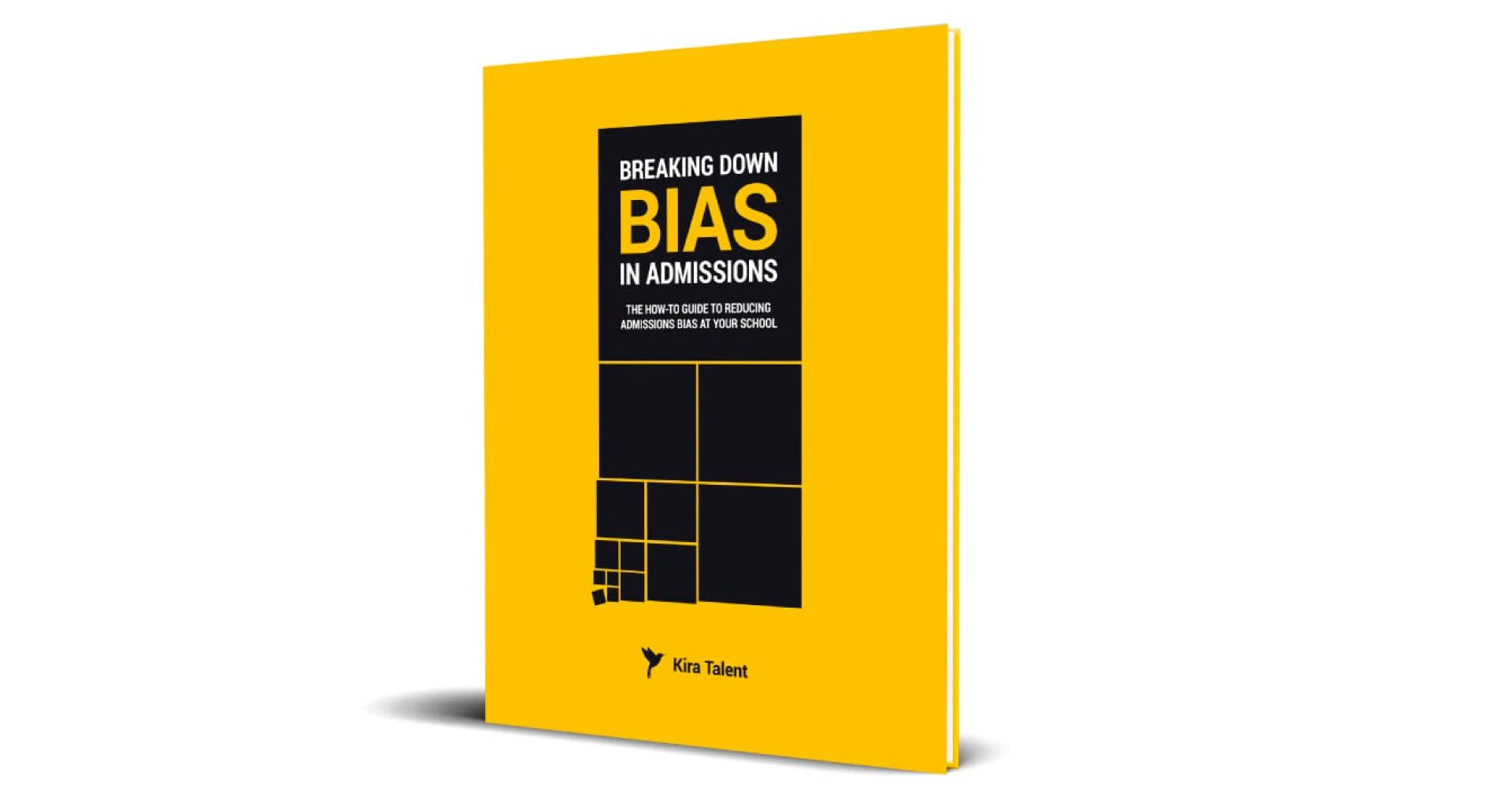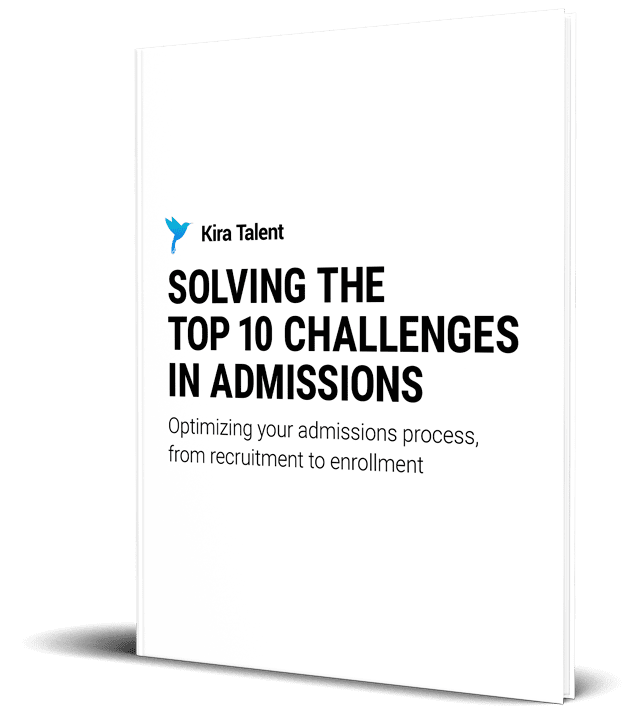English speaking institutions rely on standardized language proficiency tests such as the TOEFL, IELTS, PTE, and Duolingo English Test to assess non-native English speakers in the admissions process.
Related: How to Assess Employability in Your Applicants
Communication skills are vital inside and outside of the classroom. When it comes to collaborating with classmates and succeeding in job and internship placements, communication competence isn’t just a nice-to-have. It’s essential.
In fact, you’ll see it on nearly every list of the most in-demand soft skills. From FastCompany to Monster.com to Bloomberg, oral and written communication skills are the essential skills hiring managers unanimously agree on.
The TOEFL, IELTS, PTE and Duolingo English Test are designed to assess written and oral communication as well as listening and reading comprehension.
The Four Big Players in English Language Proficiency Tests
TOEFL
The Test of English as a Foreign Language (TOEFL) was originally developed in the 1960s and is administrated by ETS. TOEFL is accepted by more than 10,000 institutions worldwide. It has 4,500 test centers in 165 countries and more US-based schools accept TOEFL than IELTS.
Testing Time: 3 hours 10 minutes
Average Cost: $160 to $260 USD
IELTS
The International English Language Testing System (IELTS) was established in 1989 by the British Council, IDP: IELTS Australia, and Cambridge Assessment English. IELTS is also accepted by around 10,000 institutions worldwide. It has 1,200 test centers in 140 countries.
Testing Time: 2 hours 5 minutes
Average Cost: $225 USD
PTE
The Pearson Test of English (PTE) is an AI-powered, unbiased test for study abroad and immigration. It is accepted for study applications around the world and is approved for all UK, Australian and New Zealand student visa and migration applications. It has 250+ testing centers in more than 50 countries.
Testing Time: 3 hours 15 minutes
Average Cost: $200 USD
Duolingo English Test
The newest kid on the block, Duolingo English Test was first released in 2017. Unlike TOEFL and ILETS, the Duolingo English Test can be taken on-demand by users anywhere with an internet connection. Duolingo advertises that their test is accepted by more than 500 institutions, however, many programs will only accept it alongside an IELTS or TOEFL score.
Testing Time: 45 minutes
Average Cost: $49 USD
Three Challenges with English Language Proficiency Tests
Access
One of the biggest challenges with all standardized tests are the barriers they create for applicants.
Students need to be able to get to a test center, pay for the test, and succeed on the exam. Furthermore, students who have access to preparation resources (like purchasing practice tests) are at a clear advantage.
Duolingo presents a compelling alternative to the two testing giants given it is lower cost, requires less time, and can be taken from any computer with a webcam and internet connection. However, it lacks the strong reputation TOEFL and IELTS have developed over years of testing.
Fraud
Testing is also susceptible to fraud. As we learned from Operation Varsity Blues, there are covert (and costly) ways to acquire high scores. And with English language assessments, this is no different.
Earlier this Spring, California State Fullerton students were caught helping at least 40 Chinese applicants cheat the TOEFL. And last fall, Niagara College in Canada investigated more than 400 international students who supposedly passed the IELTS but were failing in the classroom.
These are just two of dozens of similar stories that show how vulnerable standardized tests can be to cheating.
Effectiveness
As the academic world questions the validity of standardized testing, language proficiency is no different. While studies by ETS, show a solid correlation between TOEFL scores and language ability, there are always going to be questions raised by the outliers, like Jay, a native English-speaking teacher and blogger who scored 6.5 on the IELTS written component.
We’re not here to try to debunk TOEFL, IELTS, or any tests as a useful data point in admissions. However, boiling someone’s grasp of a language down to a few numbers can be a dangerous game. Schools benefit from additional data points to prove the student really can communicate.
No test can compare to the value of hearing students speak and write for themselves.
How Kira Is Different
In an ideal world, admissions decision-makers would have the opportunity to see and hear from applicants. They’d have touchpoints to identify if they are able to say and write a thoughtful response without much aid. Unfortunately, the reality is that many admissions teams do not have the time or resources to meet each and every applicant all over the world.
That’s where Kira comes in. Kira enables schools to ask their applicants to respond to timed video and timed written questions as part of their admissions assessment.
Unlike language proficiency tests, Kira is:
More Human: Kira is different from other language proficiency assessments because it captures true human interactions and shares them with the admissions committee.
With Kira, you can evaluate authentic communication skills in the most efficient way possible. Rather than scheduling a phone call or in-person interview, you can ask your own questions and hear your applicants’ responses in just five-to-ten minutes.
More Accessible: Completing a Kira assessment takes students about 30 minutes, on average, and can be done on-demand anytime (and anywhere) before their deadline.
Students are given unlimited practice attempts and are encouraged to use them to feel comfortable with the platform. 67% of applicants said they preferred completing a Kira assessment to a written essay and 82% rated their overall Kira experience as either “great” or “exceptional.”
Because Kira is offered by programs, there is no additional test-taking fee beyond the application fee that your students already have paid.
More Insightful: Instead of just evaluating for English communication skills, Kira is entirely customizable. We work with you to build an assessment around the core competencies you look for in your students and develop questions and evaluation rubrics to fit the needs of your program.
If you want to ask applicants to work through a technical problem, you can do that. If you want to ask them to answer a question in their native tongue, you can do that. If you want them to upload documents, like letters of intent or resumes, you can do that too.
Harder to Cheat: Using Kira’s on-demand assessments, applicants are required to think on their feet and respond to each question within a window of time. Our suite of integrity features flag applicants who exhibit unusual behavior, such as high numbers of browser refreshes or excessively speedy typing abilities. And, most recently, we’ve partnered with Turnitin to offer a Plagiarism Checker for admissions materials.



